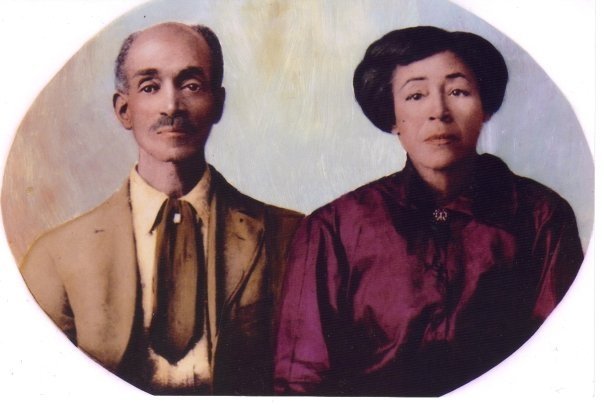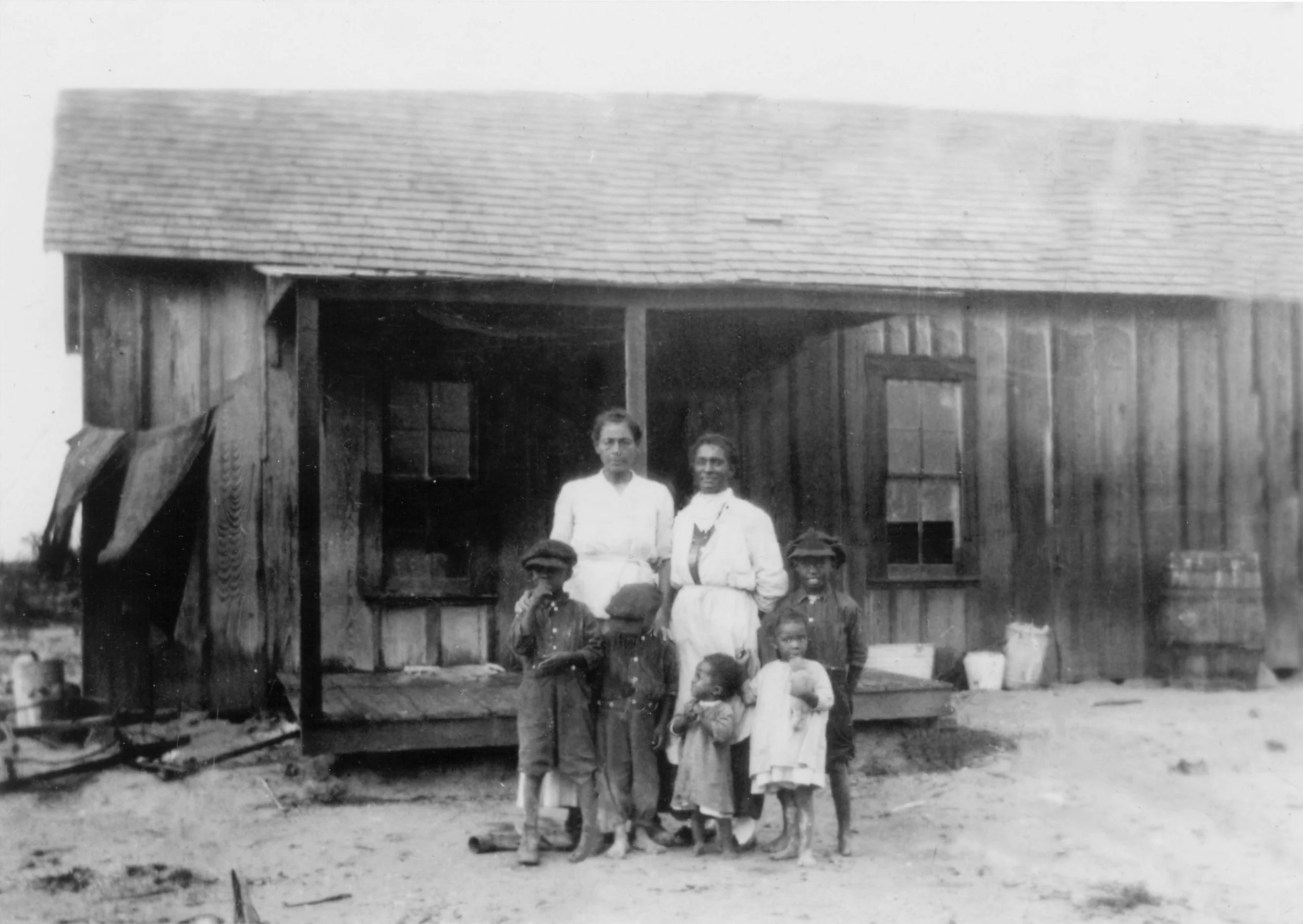born 1925 | Blackdom Farewell
Ruby Cleo - Shared with Dr. Nelson Jan 9, 2023
I was born in Dallas Texas December 20, 1925. Daddy couldn't find steady work there to feed us so he and Mama, with me a babe in arms, Junior, Frank, Moultrie and Kent, headed us back toward New Mexico in a Model A Ford. (As far back as I can remember he always managed to have an old car which he kept runnning). My family had stories of how we made our way on gravel and dirt roads across West Texas and into cotton fields, staying in labor camps or sleeping in the car. Kent was three going on four, Moultrie was about six, Frank was about eight, and Junior was about ten. From talks with my family in my later years, I can see in my mind Kent picking cotton in a sack on his shoulders between cotton stalks as tall as he was. We finally made it into New Mexico, where Daddy began working in the fields in Orchard Park, near Dexter. They left the four boys to live with Grandpa and Grandma in Blackdom. Doris was born in their tent in Orchard Park on July 9, 1927.
Something Kent told me in my later years sticks with me. He said while he and the boys were staying with Grandpa and Grandma they went to Grandpa's school which was in the Blackdom church.. Kent was about five or six at the time and when Grandma didnt get him ready in time to ride with Grandpa in his Model T Ford, he walked across the prairie tracks and trails with other children. He said he remembered the Wagoner cousins, the Olivers, Ragsdales, and the Boyers.
Another thing that Kent told me about was the time Grandpa put on an evening program for the Blackdom community. Since there was no electricity in Blackdom, the school was lit by lanterns and lamps. His students recited poems and sang songs. Kent remembered this poem Grandpa taught him for the rest of his life:
I wish I was a little rock
A' sitting on a hill
Doing nothing all day long
But just a 'sitting still
I wouldn't eat, I wouldn't sleep
I wouldn't even wash
I'd sit right here a thousand years
And rest myself by gosh
Kent said the audience clapped and laughed because they said he looked like he was about to fall asleep as he recited the poem. Kent told me that some people who lived in Blackdom and went to work in Orchard Park had told Daddy and Mama that Grandpa was going to put on the program so they came, Doris and me with them. Kent said Grandpa's students, (including his grand children), as well as Grandma and most of the people in Blackdom called Grandpa "Fessa Wagoner". I must have been around four when Daddy and Mama took us all back to Dallas.
Willie was born there in October 1930. Then some time at the end of 1930 or at the beginning of 1931, Daddy and Mama took us all back to Blackdom, where we stayed with Grandpa and Grandma again. It must have been stressful. There were four adults, four young boys, two little children and a baby, all crammed together in a two room house. I must have been five or six, but I remember a lot of yelling and screaming between my parents and grandparents.
The next thing I remember is Daddy and my older brothers stomping in some mud in a big hole. I remember it looked like fun and I kept asking Daddy to let me help. The next thing I remember is we were staying in the little one room adobe hut Daddy and my older brothers had built. Since by that time Daddy had sold his homestead, the adobe hut must have been on Grandpa's Blackdom land.
My next memory was Daddy and Mama yelling and crying with the lamp light on. The baby Wendell had died of whooping cough. I remember Mama screaming and crying when baby Wendell was put in the grave in a coffin Daddy and Grandpa had nailed together.
The next thing I remember is walking over a trail to Grandma and Grandpa's house. It must have been a distance of maybe a short city block because I could see their house from our little adobe hut. I went there because Grandpa was teaching me to read from the Mcguffey Reader he had. I dont remember any people in Blackdom. I think most or all of them had left. Those were some my memories of my brief time in Blackdom, before Daddy and Mama took all of us children to live in Dexter where he sharecropped with my older brothers.
While we were living in Dexter I remember that we went back to Blackdom several times to visit Grandpa and Grandma. Daddy and Mama drove us all by where the little adobe hut used to be. In my mind's eye I can see the crumbled pile of dirt where the hut had been.
In May 1934 John was born in Dexter. Then in 1935 we left Dexter and settled down in Roswell where all of us children grew up. Here are some things Kent told me about Grandpa and Grandma's life in Blackdom. Many of the happenings were when Blackdom was on the decline and when Grandpa and Grandma were probably the last of the Blackdom homesteaders.
Water for drinking and cooking came from a well in Grandpa and Grandma's yard. The bucket that was let down into the well started bringing up muddy water. The saying was that "the well went dry".
Grandpa put barrels on the back of his wagon, clucked and stroked the horse with a whip to drive to the windmill about a mile away. The windmill belonged to a rich white rancher who allowed Grandpa to fill his barrels from the big cistern the cattle drank from. The white rancher might have been the one who bought up some of the Blackdom homesteaders land.
A dipper was used to dip water from the water barrels. Grandma used a few dippers of water to water a little space in the yard where she grew a "mess of greens". Grandpa shot rabbits for some of their food and I think they raised some chickens in a coop protected from snakes. The Blackdom school was closed by then because the Blackdom people had left for Roswell and other places with their children. Grandpa didnt have a car then, so he drove his horse-drawn wagon down to Dexter, maybe about eight miles away, to buy staples like flour, cornmeal and baking soda.
Grandma had a big iron cookstove. The fuel she used was cow chips, the dried- up dung from cattle from where cattle had grazed, especially near the windmill cistern. We four boys used to take cotton sacks or croker sacks and pick up cow chips for Grandpa and Grandma. Grandpa had a big old trunk where he kept a diary and all kinds of papers.
Notes from Ruby Cleo:
Many years went by. After many talks with Kent and occasionally with Daddy and Mama, my imagination was fired up. In my mid age I wrote a book, entirely a figment of my imagination, a fiction, not to be construed in any way to be true.
I did some research and found out how grandpa got money after his Blackdom school closed after all the people left. It must have been from the townsend plan, a federal plan begun during the great depression. It was a precursor to social security.
Kent told me he remembered the trunk very well. He said when he was living with grandpa and grandma as a little boy, he used to see grandpa writing things and putting them in the trunk. After grandpa's death grandma moved to Alamogordo, where other Wagoners’ lived, and took grandpa's trunk with her. (One can only imagine what a valuable history the trunk held.)
This is the fictional book about Grandpa and Grandma and ending with their lives in Blackdom:
The Wagoners | Fiction - African American ISBN 9781301707805
Author: Claudine LeBeau (pseudonym) | Publisher: www.smashwords.com


